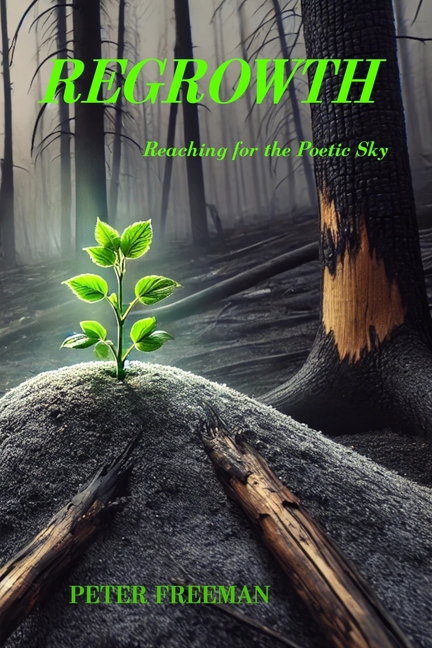Description
Regrowth: Reaching for the Poetic Sky is a luminous and courageous collection that charts one poet's evolving journey through life-beginning in childhood wonder, traversing the trauma of adolescence, pausing in the ambiguities of adulthood, and arriving at a hard-won maturity tempered with wisdom.
Structured in five parts-Childhood, Adolescence, Adulthood, Maturity, and Wisdom-the collection becomes not only a poetic autobiography, but also a deeply human map of resilience and reflection. Each stage peels back layers of lived experience: formative memories, haunting betrayals, moments of epiphany, and flashes of beauty found even in life's harshest corners.
In the searing poem "Inmate Number 429," the poet recounts time spent in a notorious boys' home in Brisbane, where systemic abuse left scars both physical and spiritual. With stark, lyrical candor, he invites the reader into a harrowing world of cruelty and survival, asking, "Does my crime fit the punishment? And who has become my judge, jury, and executor?" In "Death of a Fruit Bat," a delicate creature becomes the symbol of innocence destroyed, echoing the wider theme of nature's exploitation and the moral numbness of modern man.
As the poet enters adulthood, moments of homelessness and inner dislocation surface, explored with dignity and unflinching honesty in "Homeless"-a raw portrait of vulnerability on the margins. In contrast, "Woman at the Foot of a Bed" is a sensual, painterly tribute to intimacy and memory, where love lingers like perfume in the soft light. Here, eroticism is treated not as titillation, but as sacred memory-sensuality rendered in poetic brushstrokes.
In Maturity and Wisdom, the tone broadens and deepens. "Place in Time" recounts a solo bicycle journey around Australia, its sparse beauty evoking both awe and humility: "I'm passing through. I can only move through this place. I would never survive here-I can only experience it." The theme of transience culminates in the two-part poem "Transient," where a chance meeting between two damaged men leads to shared healing. This modern rime, reminiscent of Coleridge, traces the invisible threads of trauma, compassion, and redemption-one soul helping another find wholeness.
Throughout the book, the poet's craft is evident not only in his imagery and rhythm, but in his emotional precision. Whether recalling the quiet violence of neglect, the ache of a lost child, or the subtle revelations of aging, each poem insists on truth-even when that truth is difficult. Regrowth does not seek pity, nor does it settle for bitterness. Instead, it embodies the act of reaching upward-like a shoot through hardened soil-toward meaning, purpose, and poetic sky.
This is not merely a collection of poems, but a deeply personal offering: a poetic memoir spanning decades, stitched together with scars, grace, longing, and survival. It will speak to readers who know the sting of loss, the redemptive power of love, and the tireless push toward healing. Through it all, Regrowth reminds us that life, though fractured, can still blossom anew.
Product Details
- Jul 6, 2025 Pub Date:
- 1990415458 ISBN-10:
- 9781990415456 ISBN-13:
- English Language




